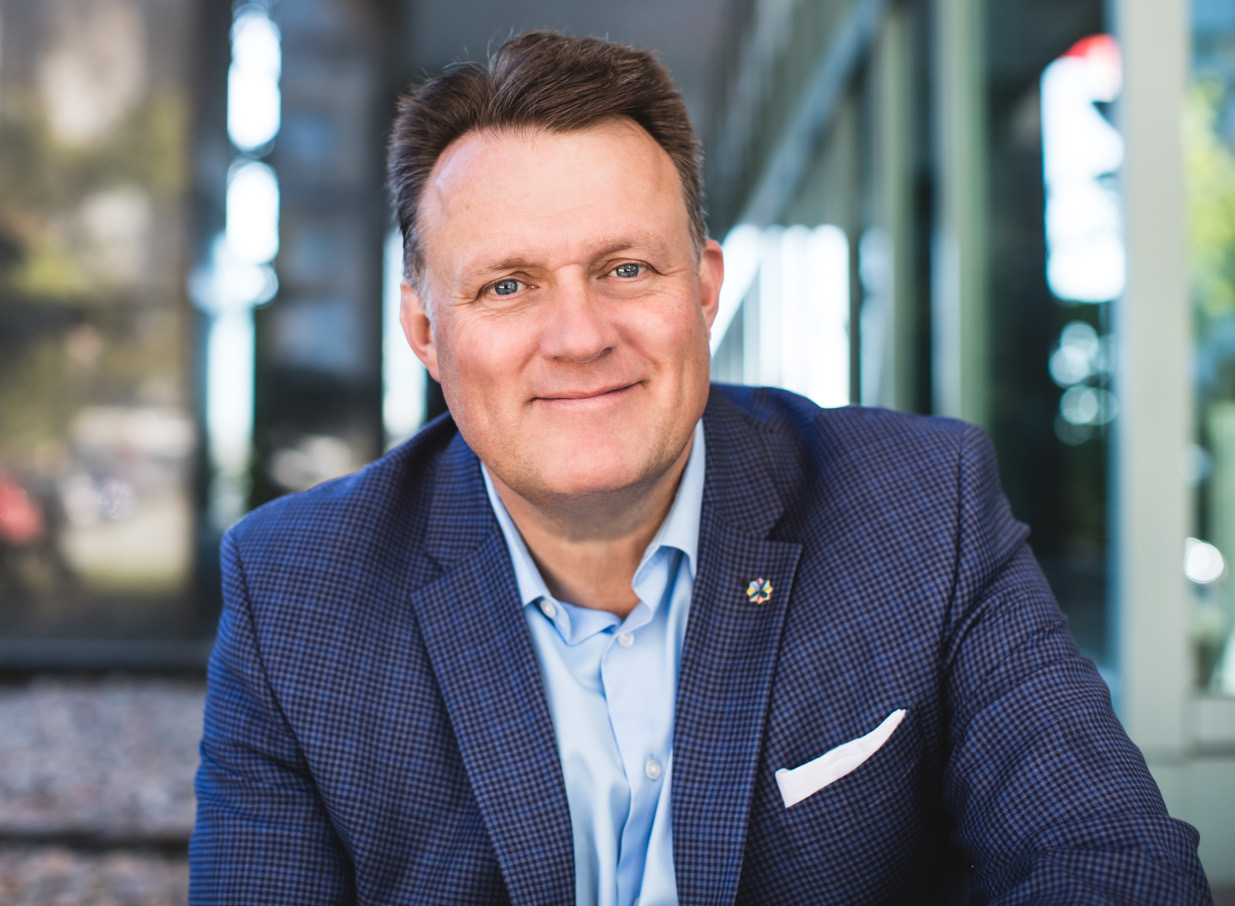Savage hopes to bring lessons from COP28 home to Halifax
Mayor travelled to Abu Dhabi for United Nations climate conference

caption
HRM Mayor Mike Savage returned to COP this year for a third time, having attended in 2021 and 2022.Mayor Mike Savage wants to transfer his experiences at the 2023 United Nations Climate Change Conference (COP28) into climate action in Halifax.
Savage is in Abu Dhabi this week, representing the city at COP28, and says that upon his return he will apply what he’s learned to help Halifax do better.
The annual conference attracts thousands of politicians, diplomats and industry leaders to assess and discuss climate change.
“This is the first COP where there’s been a really official role for cities in the conference of the parties,” said Savage in a phone interview Saturday. Savage returned to the conference this year after having gone in 2021 and 2022.
“This morning I’m in a meeting and I’m sitting at a table with the mayors of Copenhagen and Malmö, Sweden and São Paulo,” said Savage. “It’s not an opportunity that you get very often.”
Savage said he also attended a panel on climate finance with the mayor of Rio de Janeiro, Brazil and the mayor of Lusaka, Zambia.
Savage said he is excited to bring his new knowledge to Halifax’s CEO Climate Action Charter, which encourages its signatories, including Dalhousie University, Nova Scotia Power and the Halifax Port Authority, to “take meaningful climate action.”
The charter, created earlier this year, includes vows to “embed climate goals into” signatories’ “culture and values”, and “find new ways to support new ideas and solutions that accelerate climate action.”
Savage said that upon his return he will meet with those who have signed on to discuss what he’s learned and what he believes they can be doing better. He also mentioned HalifACT, a 54-page report from 2020 that outlines the city’s plan to achieve a net-zero economy by 2050.
HalifACT includes 46 “actions” (some were subdivided, creating a total of 53) including “install zero-emissions back-up power in critical infrastructure” and “develop a coastal-specific adaptation strategy with coastal communities.”
A report released on Nov. 30 by HRM’s environment and sustainability committee said that 36 per cent of the 53 actions were “on track.” In 2022, that figure stood at 30 per cent, and in 2021 it was at 20 per cent.
One of the driving forces behind HalifACT was Shannon Miedema, HRM’s director of environment & climate change. Miedema also travelled to COP28 this year as a part of Halifax’s delegation.
In a phone interview Saturday, Miedema said that cities’ involvement in the global climate action conversation is imperative.
“If every city and town doesn’t do what they need, then the provinces aren’t going to hit their targets, then the country’s not going to hit their targets,” said Miedema.
Miedema said that the Coalition for High Ambition Multilevel Partnerships (CHAMP) is an important pledge that came out of COP28 that reaffirms the need for governments of all levels to play a part in climate action.
“Canada just signed on to that,” said Miedema. “I feel like we’re making progress about actually getting what we need as cities to do what’s needed.”
As an example of something Halifax has done to combat climate change in the past year, Savage mentioned the plan to bring 200 electric buses to Halifax’s transit fleet.
The first of those buses arrived in the city this month.
Savage said that in addition to incorporating electric vehicles into the city’s transit system, the municipality is focused on nature-based solutions and the protection on wilderness areas.
One example is the $5 million Green Shores Project, which involves building natural infrastructure along Shore Road in Eastern Passage. The project was approved in order to fight shoreline erosion resulting from storms such as post-tropical storm Lee, which washed the roadway out earlier this year.
“I think there’s a bit of a heightened understanding of the impacts of climate change in Halifax because of the year that we had,” said Savage.
“The worst floods in our history, the worst fires. And I think people are recognizing that we’re getting hounded by this. So, we can’t ignore it and we have to do something about it.”
In July, intense rainfall led to flooding in East and West Hants, HRM, Lunenburg, and Queens counties, killing four people and displacing roughly 150. In May and June, a wildfire in Tantallon and Hammonds Plains destroyed 200 buildings and displaced over 16,400 people.
Savage said it’s important for political leaders to realize that there is a “cost to climate change” and that “the cost is only going to escalate in years to come if we don’t do something about it.”
About the author

Ben Dornan
Ben Dornan is a student in the master of journalism program at King's. He loves writing.
